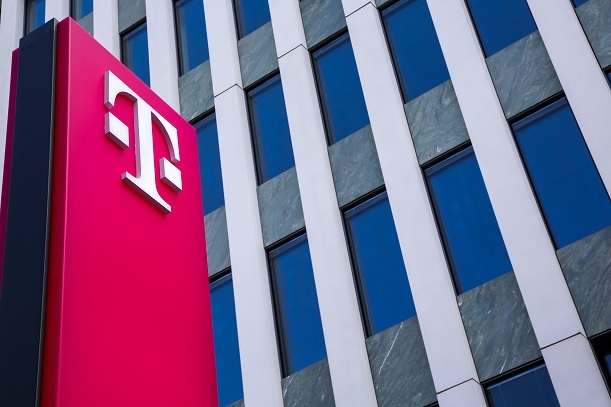For Telekom, more tower sales, more Open RAN…while for Europe, more mobile consolidation
Speaking at the telco’s Q2 results this week, Deutsche Telekom CEO Tim Höttges showed analysts that he was reasonably sanguine about the German Government’s stance over “high-risk” 5G vendors, seeing no immediate impact to the telco’s business.
Höttges also signalled more tower monetisation in-train for the telco, even while the European tower market continues to consolidate more widely. Chief financial officer Christian Illek went further saying more than half of Europe’s mobile operators have fewer than 500,000 subscribers meaning consolidation is inevitable given many are not covering their capital costs.
The high-risk question demands low-risk answers
The German government is currently reviewing whether some kit from Huawei and ZTE should be banned from its telecom networks following the EU’s decision to impose security restrictions on the use of 5G equipment from “high-risk suppliers”.
Given the amount of trade between the two nations, some German industry leaders, including Deutsche Telekom CEO Tim Höttges, have been warning of a wider Beijing backlash should the country follow suit with equipment bans.
At the Federation of German Industries, in June, Höttges downplayed the threat of Chinese radio access network kit like antennas being critical, warning attendees that banning antennas would have consequences for other industries selling products to China.
Referring to the German Government’s recent China Strategy at the telco’s results, Höttges said: “I think it is a very clear statement that there is no decoupling intention from the German Government. Nevertheless, there’s an argument about sovereignty which the companies should care about.”
He added: “And therefore, I do not see that there is any kind of aspiration for banning any new vendors here. There is a security element, which we always have to consider. And Deutsche Telekom is fulfilling that.”
He emphasised the telco was using Ericsson for its mobile core and Mavenir for IP aggregation. “We don’t have any kind of China vendor and in the access nodes in the RAN infrastructure, there is one component where maybe the security authorities will – might have a change, which is the configuration management and we are on the way of becoming independent here as well,” he said, adding that he didn’t see any immediate impact on Telekom’s business.
More tower sales possible
Höttges said the telco had carved out its Czech towers business on 1 January and that the Slovak towers business is currently in the process of being carved out. “We are analysing potential options in other countries of Deutsche Telekom and their footprint. So we have still potential to sell towers to the market or into our partnership here.”
Last year Telekom Deutsche agreed to sell a 51% stake in its towers business to DigitalBridge and Brookfield – which became GD Towers.
“We’re talking about something like 4,700 towers in Czech, or 2,500 towers in Slovakia. So therefore, there’s still a lot of potential within the group how we can monetise assets on this one, but no decision taking on that one,” he said.
The CEO said GD Towers will likely play an active role in further European tower consolidation but did not speculate further on what that may look like.
CFO Illek said European telco industry consolidation was inevitable – adding that the regulators should support it. “We have the situation in Europe that I believe are over the next years, there will be consideration coming because there are 67 mobile operators in Europe of which 35 are operating with [fewer] than 500,000 customers,” he said.
“So, this is highly unprofitable. They’re not earning their capital costs, so they will fall into someone’s arms. And I hope that the European policies changing. So something is going to happen here as well,” he added.
O RAN so far away
Höttges said the telco – with Nokia – was making “good progress” with Open RAN. “We have this big pilot run – up and running in close to Berlin, our expectation is that we are scaling up open RAN next year in a significant magnitude to just show the mass market qualification for that product,” he said.
“We see that open RAN is really gaining traction. 300 telcos, vendors, academics are members of our consortium here. And the technical things are on a good way to [getting] solved,” he added.
The BT Conundrum
One analyst asked Höttges what Telekom’s 12% share in UK incumbent BT might look like in 12 months, given the rough ride the operator has had in the past 12 months. He described it as “tricky”.
“Are we happy with where the company stands? No. Is it – are there a lot of, let’s say, green lights in the business? Yes. If you see what this company has ticked over the last quarters, it’s quite impressive, with [Openreach’s] Equinox 1 and Equinox 2 was, let’s say, the developments on the fibre build-out,” he said. “Even the interest rates [are] helping them on their pension side.”
The latter comment reflects on the fact that some analysts have quipped that BT is a pension business with a side operation as a telco.
Höttges said despite some investor concerns disappearing, the share price hasn’t reacted so there is still a way to go with the business. “I think this company is very well positioned for convergence, and it’s – I’m a strong believer that this company is going to be successful on the midterm on a long-term perspective,” he said.
“Now today, it is not showing it, so therefore, we have to find the right ways of approaching it… we have to see now with the new CEO and all these kind of things, how this is evolving… t’s clearly something which – where I want to see an improvement over the next 12 months because we are waiting already for quite some time,” he added.


